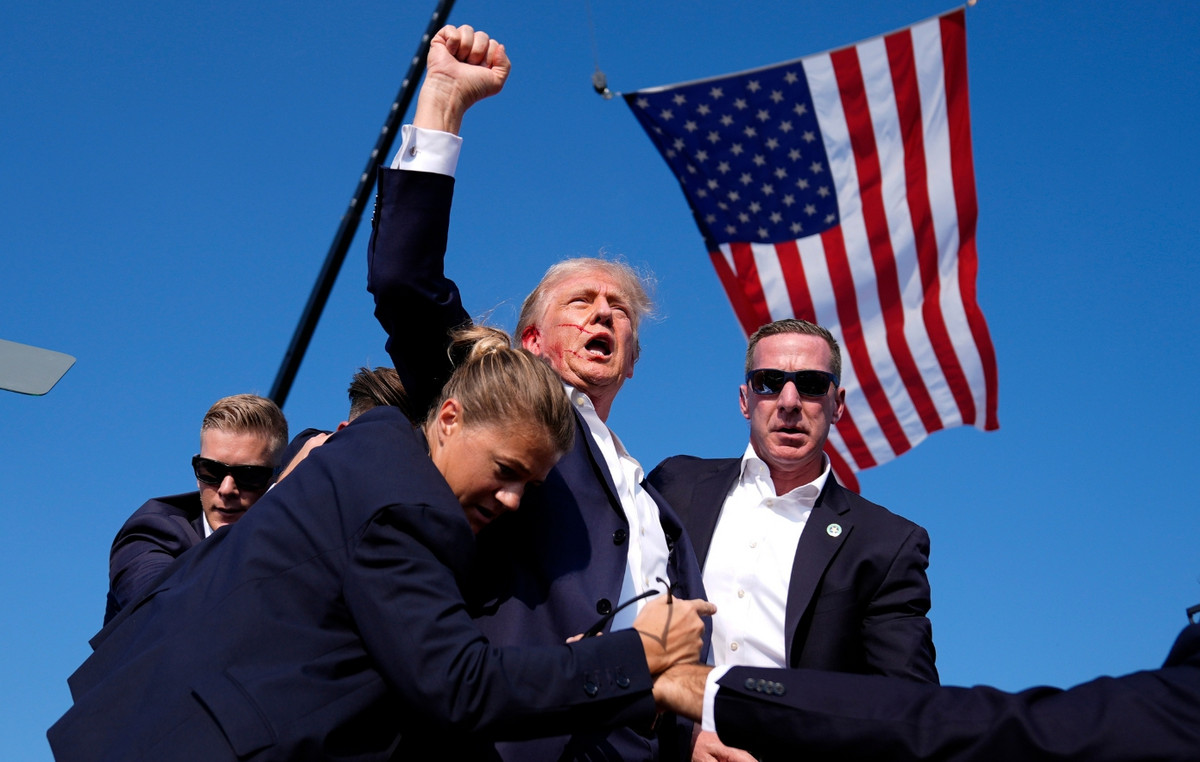When the first United Nations Conference on Climate Change took place in 1995, global warming was already a very close danger. A quarter of a century later, however, the planet is officially sick: and this feverish state has already had consequences on people’s health, impacts on the economy, and the solution seems far away.
Even so, the COP26, held in Glasgow, Scotland, was not radical enough to try to contain the climate crisis, believe experts consulted by CNN.
In the words of biologist Mairon Bastos Lima, a researcher at the Stockholm Environmental Institute, the advances are taking place “at a snail’s pace and not at the speed required to maintain the average rise in global temperature at 1.5ºC or even 2ºC”. Endangered turtle steps, it is worth mentioning.
“The analysis currently being carried out is that, if all the measures currently proposed were fulfilled, we would still end up with a 1.8°C to 2.4°C average temperature rise. Clearly, it’s not enough,” adds Lima.
This rise would mean even greater loss of species, extreme weather events, and the disappearance of both coastal areas from some coastal cities and entire islands in the ocean.
Biologist Mairon Bastos Lima, researcher at the Stockholm Environmental Institute
In other words: the ambition in the agreements would have to be greater.
“There is no guarantee of compliance with any agreement, as many of the items in the agreements are voluntary. The failure to reach a more ambitious agreement and the call for countries to present new targets in 2022 may stimulate greater activism in society, especially among young people”, believes forestry engineer Paulo Barreto, a researcher at Imazon.
“For example, society can act more focused against subsidies on fossil fuels and on sectors that emit methane, such as livestock. With greater pressure it would be possible to reduce some of the emissions even faster than has been committed. In the Brazilian case, we could reduce emissions by almost 40% with the end of deforestation without harming the economy. This would be possible by improving agricultural production in already deforested areas. There are almost 95 million hectares of degraded pastures.”
Advances against fossil fuels
Among the advances of COP26, the explicit recognition, for the first time in a conference document, of the importance of reduce the use of fossil fuels. In other words, it was checkmate in coal, even though the elimination goal was replaced by a reduction one.
“At the end of the event, India and other countries managed to change the language [atenuando o relatório final], from phase out for phase down, but it was noticed that the dirty energies were never as harassed as at COP26 before”, says Lima.
With the leadership of the United States and the European Union, more than 100 countries have agreed to reduce methane gas emissions by 2030. More than 40 countries, including large coal users like Poland, Vietnam and Chile, have agreed to phase out this fossil fuel. .
In addition, more than one hundred national governments, cities, states and large automobile companies signed the “Glasgow Declaration on Zero-Emission Cars and Vans” to end the sale of combustion engines until 2035 in the main markets and, worldwide, in 2040.
At least 13 countries have also pledged to end sales of heavy vehicles powered by fossil fuels by 2040.
All the commitments made can be fulfilled and there are already several studies on the feasibility of the transition to a decarbonized economy. What is missing is political will
Alexandre Prado, director of green economy at the organization WWF-Brasil
“Unfortunately, the lobbying of the sector linked to fossil fuels and the focus on the short term, whether by investors or politicians, still makes many people plan for the future looking in the rearview mirror.”
Combating deforestation and regulating the carbon market
During the COP, nearly 120 countries — representing 90% of the planet’s forest cover — committed to halting and reversing deforestation by 2030.
There was also a financial commitment. A new fund was approved to end illegal deforestation by 2030 — it should be constituted by 2025 and had the United States as the largest donor, with a commitment to inject $12 billion.
Another $7.2 billion is expected to come from private companies. But it has not yet been clarified how this money will actually reach the projects.
The issue of the carbon market also took steps forward, with the regulation of this tool, enabling emitting countries to meet their targets by acquiring shares from countries that manage to sequester greenhouse gases.
In the assessment of Fabio Feldmann, senior consultant for political articulation at the Centro Brasil no Clima, the release of this mechanism needs to be commended.
On the other hand, he recalls that financing commitments signed at other COPs, such as the one in Copenhagen, 2009, were not fulfilled “and that passed unnoticed”.
The countries most affected by global warming are still without objective conditions to face the problem. And the water is on the knee
Fabio Feldmann, senior political articulation consultant at Centro Brasil no Clima
Specialist in ecology and professor at Universidade Presbiteriana Mackenzie, biologist Magno Botelho Castelo Branco highlights the historic agreement signed between China and the United States.
In a bilateral pact announced during the COP, the two countries, the largest producers of greenhouse gases, pledged to take measures to reduce these emissions.
“In a joint statement, they said they agreed to take action on a number of issues, including methane emissions, transition to clean energy and decarbonisation. They also reiterated their commitment to keeping the 1.5ºC target alive,” says Castelo Branco.
On the other hand, he also believes that the step taken was small, given the size of the problem.
“Overall, the commitments made were not as ambitious, leaving many analysts disappointed in some cases. And I think that the commitments to decarbonize the energy matrix will continue at a slower pace than agreed, especially given the resumption of economic growth in the post-Covid era”, he comments.
Society and diplomacy pulled Brazil
It was expected, given the current political context: Brazil did not play a leading role at the negotiating table, taking on the natural leadership of those who have rich biomes and the strength of the Amazon. Even so, the national delegation showed pragmatism and was not an obstacle to the negotiations, in the opinion of the experts.
“Brazil arrived in Glasgow totally discredited, but achieved a positive repositioning, which partially rescued its historical protagonism”, comments Feldmann. “This is thanks to the professionalism of Brazilian diplomacy and the presence of our civil society, indigenous leaders, our young people and the cosmopolitan business sector.”
“Our diplomats were pragmatic, as they knew that Brazil was in the position of pariah and could once again emerge as the COP’s villain”, adds Natalie Unterstell, president of think thank Talanoa, dedicated to climate policy, and master of public policy by Harvard University.
“So, they showed themselves to be quite flexible and collaborated to unlock the negotiations that had stiffened in previous years. But the head of the delegation, Environment Minister Joaquim Leite, had a timid participation and spent almost all of his time at the stand in Brazil, away from the main dialogue tables.” THE CNN he sought out the Ministry of the Environment to comment on the criticisms, but got no answers.
In terms of image, however, the wear remained. Brazil has twice won the “fossil of the day” award, given during the conference by non-governmental organizations to those seen as enemies of environmental preservation.
The “recognized” were President Jair Bolsonaro and Minister Joaquim Leite.
Still on the Brazilian participation, Paulo Barreto, from Imazon, believes that the positive highlight was due to the engagement of civil society. “What was new in relation to the last COP was a broader participation of society, including businessmen, business executives, young people, indigenous peoples and environmentalists. These groups have demanded more commitment from the government”, he points out.
Reference: CNN Brasil
I’m James Harper, a highly experienced and accomplished news writer for World Stock Market. I have been writing in the Politics section of the website for over five years, providing readers with up-to-date and insightful information about current events in politics. My work is widely read and respected by many industry professionals as well as laymen.







